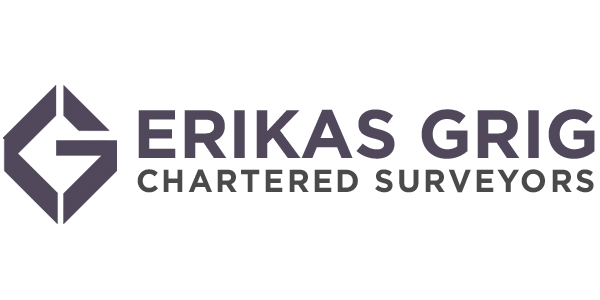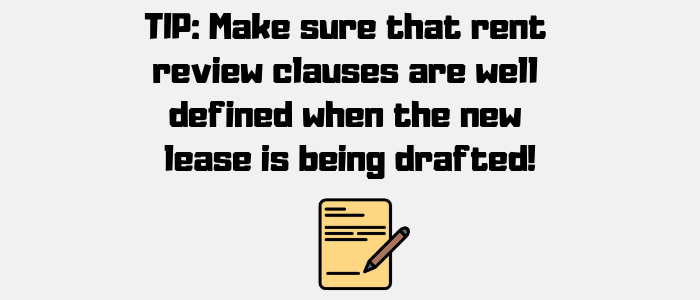Rent review basics
The rent review in commercial property is an inevitable necessity occurring at the set time intervals which are prescribed into the lease. It is imperative to understand why getting it right is important for both the landlord and the tenant. [toc content=”.your-container”]
The commercial property leases in the UK can range anywhere from a couple of months to decades. Probably the most common lease term is 10 years which is often found in the office, retail and industrial properties. The rent reviews are prescribed rent increases and can occur every 3 to 5 years depending on how it is worded in the lease and can be at shorter or longer intervals. The rent reviews can be found in both type of leases ‘contracted out’ and ‘protected’ under the Landlord and Tenant Act 1954.
Rent review method
The landlord with a good management system in place will be sending the rent review notices no earlier than a year before the actual rent review commencement. The exact rent review mechanism is prescribed in the lease and will outline what process must be followed to complete the rent review.
It can be difficult to get the rent review done in a timely manner if the process is not clearly defined and can result in disagreements. To avoid such complications, it is best to ensure that when the new lease is drafted, the rent review mechanism should be well defined and thought off.
How rent reviews are done
As mentioned above the process for the rent review will usually be set out in your lease. The landlord will have to follow that process to the detail or risk of invalidating the rent review.
Particularly if deadlines are missed as prescribed in the clause the tenant can benefit from such mistake because the landlord would have to wait until the next rent review period to increase the rent. This might not always be the case and some clauses provide a grace period or allow a retrospective rent review if it is missed.

There are four most common rent review types found in the leases
Open market rent reviews – This is the local rental level your landlord can reasonably expect to get. Depending on the type of use commercial property has it will be compared with other similar commercial properties in the local area and their rental levels per sq ft will be used as evidence to justify the increase in rent.
Index-linked rent reviews – The increase in rent will be completed using a prescribed index. It can be consumer price index (CPI) or retail price index (RPI) these are the most common indexes ones found in the leases. Depending on how often rent reviews are conducted, the index-linked rent reviews will measure the period from the current rent to the rent review. The rent will be increased in line with the index increase. You can use custom built CPI inflation calculator or RPI inflation calculator to adjust index-linked rent reviews on your properties.
Fixed rent reviews – These type of rent reviews is by far easiest to complete and comprehend as they usually do not require any specialists to undertake and can simply be done by the landlord himself. The fixed rent reviews are rare but not uncommon and can be found in properties that are remote or hard to value in general.
Such properties could be with designated planning use of D1 or D2 and include schools, places of worship and similar. The fixed increase in rent will be defined for the lease term and will be increased at specified intervals and to a specified sum. For instance, if rent in year 1 is £5,000, then rent at year 2 is increased to £7,000.
Turnover based rent reviews – It is not uncommon to find rent reviews that are linked to the turnover of the tenant’s business. The turnover rent reviews can be based on the fixed percentage of the turnover generated by trading out of premises or a combination of market rent and a percentage of the turnover. Turnover rent reviews require full disclosure of tenant’s trading accounts for it to be successfully completed.
Therefore, lease agreements need to take account of this and have clauses that stipulate the requirement to disclose the accounts to the landlord when requested. These type of rent reviews are not for everyone and are mostly used by institutional landlords and REITS.
Disagreeing with rent review
The rent reviews are done by specialists mostly but even so, there is always a chance for a slight margin of error where rents are overestimated. As the tenant, you have a right to dispute the newly proposed rent and instruct your own surveyor that will prepare a rent valuation and lead the negotiations to get the best deal for you.
Any rent review disagreements should be initially attempted to be solved via informal negotiations between parties. Only then if the sensible agreement cannot be reached the third part expert or tribunal determination should be sought.
Every attempt should be made between parties to resolve the dispute before requesting third party determination because of extra costs associated with using such resolution.
The importance of disregards and assumptions
When rent reviews are due, the landlord’s surveyor will use the lease as a basis to understand what elements need to be disregarded.
The most common assumption disregarded in lease clauses is the tenant’s improvements.
If the tenant has carried out any alterations, extensions or other significant improvements these would normally be disregarded during the rent review process. The landlord’s surveyor would value the property based on what it looked like on the day tenancy started.
Tenant improvements are the common clause in the commercial leases, however, in the situations where such clause does not exist, it can complicate the rent review process.
This would be beneficial for the landlord as he could include all tenant’s improvements in the rent review which would guarantee the significant uplift in the rent. This scenario would be unfair to the tenant and landlord could take the advantage because of non-existent tenant’s improvement clause.
The same can be said to the landlord. The perfect example is the repair obligations in the lease. Well-drafted commercial leases will contain a repairing clause which obliges the tenant to keep the property in a good condition.
This means that when rent reviews are conducted, they are always completed on the assumption that the property is in good condition even if the tenant did not comply with such clause and the property is in poor condition during rent review.
However, if such clause is non-existent in the lease, then there is no contractual obligation for the tenant to keep the property in a good condition. Also, when rent reviews are conducted by the landlord, the rent of the demise would need to be valued based on the current condition.
So, if the property is kept in the poor condition the landlord’s surveyor would still have to base the new rent on the current condition. The tenant would benefit from this hugely because rent might not be increased at all due to poor condition or increased significantly below market level.
Therefore, I again stress the importance of seeking legal advice and using professional commercial conveyancers to include the protective clauses that consider such elements.
Why rent reviews should not be overlooked
Sometimes if the commercial properties are mismanaged by the landlords or their managing agents, the rent reviews can be missed. This means that the rent will continue to be paid at the same level as before. However, this does not always benefit the tenant.
Why? Because a lot of leases contain retrospective rent review provisions which mean that even if 10 years’ worth of rent reviews are missed the landlord can still go back to value the historic rents and serve the demand for unpaid rents.
This can be catastrophic for the tenant financially, therefore, knowing your rent review provisions inside out is a must.
Also, the tenant should be proactive in requesting rent review completion if the landlord missed it, to avoid accumulation of missed rent reviews and potential risk of retrospective action by the landlord.
The same goes for landlords, sometimes lease provisions does not confer a retrospective rent review. If the dates are missed as prescribed in the rent review procedure within the lease, the landlord will be unable to go back and complete it retrospectively and will have to wait until the next rent review or lease expiry to increase the rent.
How can we help
We can analyse your lease clauses and explain in detail how to rent review should be approached. We aim to make sure that the new rent at rent review is increased in line with the going market rents and you are not overpaying. Get in touch if you need any further advice on commercial rent review or see the commercial property valuation services we offer.





